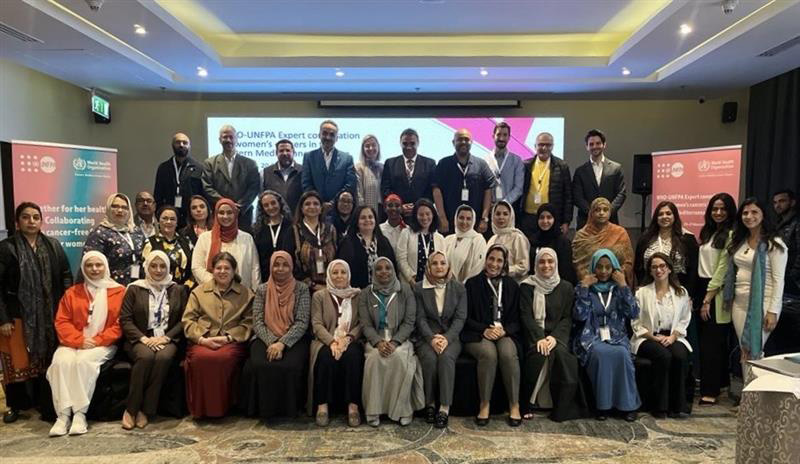
2 December 2024, Cairo, Egypt – The World Health Organization (WHO) has released a new report that highlights how, if left unaddressed, breast and cervical cancers in the Eastern Mediterranean Region could result in the loss of millions of lives and billions of dollars over the next 2 decades.
Women’s cancers represent a major public health challenge in the Region, causing immense suffering and substantial social and economic costs. In 2020, these cancers claimed 60 000 lives and cost US$ 15 billion, equivalent to 0.44% of the Region’s GDP. Cancer deaths are projected to soar to 2 million over the next 20 years, with associated economic costs rising to US$ 379 billion by 2040.
In response to calls from Member States for evidence-based guidance, WHO’s Regional Office for the Eastern Mediterranean conducted a comprehensive situation analysis and investment case on the impact of women’s cancers on health systems and economies. The findings underscore the urgent need for early intervention to mitigate the growing crisis. Key takeaways include:
In 2020, breast and cervical cancers resulted in 60 000 deaths in the Region.
The economic burden of these cancers is projected to reach US$ 379 billion by 2040, with up to 99% of the costs stemming from lost productivity due to premature deaths.
Cost-effective interventions, such as HPV vaccination and early breast cancer diagnosis and treatment, have the potential to prevent 73 000 deaths and deliver significant returns on investment.
The report underlines how investing in women’s health is an economic opportunity rather than a financial burden. Every US$ 1 spent on HPV vaccination could yield a return of up to US$ 6.2, while investment in early diagnosis and comprehensive treatment of breast cancer could provide a return of between US$ 6.4 to US$ 7.8 on each US$ 1 invested.
To better reach underserved populations, the report highlights the need to overcome cultural and economic barriers to access to health care and underlines the role of community health workers, culturally tailored health communication and insurance reforms.
As WHO calls for an integrated approach to cancer prevention and treatment, situating efforts within broader health strategies to strengthen primary health care systems, the report provides governments in the Region with a vital tool to inform evidence-based decisions that not only save lives but contribute to long-term economic resilience.
By scaling up WHO-recommended interventions, governments will benefit individuals and societies, protecting the health of women and creating substantial economic returns.
Read the full report here
https://applications.emro.who.int/docs/9789292743369-eng.pdf?ua=1


